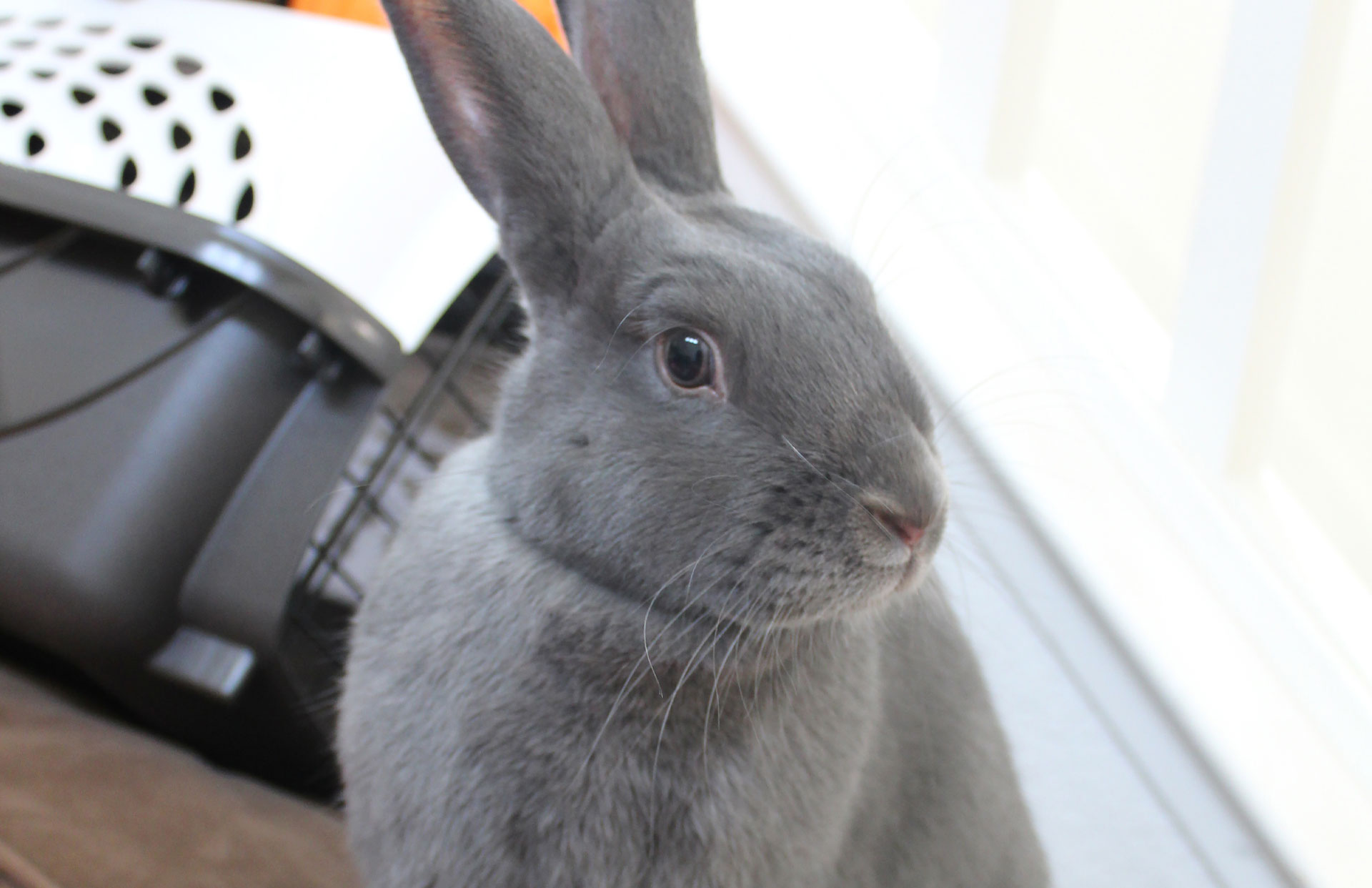5 Things to Consider before Adopting a Rabbit
If you’ve never had a rabbit before–or you currently can’t commit to providing a rabbit a forever home–try fostering!
Fostering frees up space at rescues and shelters to make room for other rabbits who need rescue, so you’re helping save even more rabbits by opening your heart and your home to a foster rabbit. It’s also a great way to find out whether a rabbit is a good fit for you, your family, and your lifestyle before you make a lifetime, 10-year commitment to adopt. Find your closest HRS chapter at URL.
Rabbits are social, intelligent, interactive companions, but it takes a special person to appreciate the ways a rabbit is different from what people expect. The rabbit’s subtle yet sometimes outgoing personalities and behaviors can take patience. And a lack of attachment to material goods can help as well–depending on how much of a tendency toward chewing or digging your rabbit have. But as the rabbit reveals who they truly are, the true rabbit person tends to feel honored–and impressed. And when you and your rabbit become friends, it simply feels amazing.
If you’re ready to open your heart and your home to a rabbit, here are five things you should consider:
-
Rabbits Can Live 10+ Years
With proper care, and barring unforeseen illnesses, rabbits can live 8-12 years, or more! Before bringing a rabbit home, you need to consider what your life will look like over the next few years. Are you anticipating moving? If you moved, would you plan to take your rabbit with you? If you aren’t ready to commit to an animal for the next 10+ years, you may want to re-consider adopting. -
Rabbits Need Lots of Exercise
Our recommended setup for a rabbit is a 4×4 exercise pen, with a fleece blanket for flooring. This gives the rabbit plenty of space to stretch out when they’re penned. However, they’ll also need at least four hours of playtime outside of their enclosure to keep them happy and healthy. Rabbits play in different ways — this could mean chewing a cardboard hidey house, throwing plastic toys around, digging in a dig box, or just exploring the house. Rabbits also like to spend time interacting with their person, whether it’s hopping on their back or nibbling on the book you’re reading. Be prepared to give your rabbit the attention they ask for! -
Rabbits Need to be Kept Indoors
Domestic rabbits are different from the wild rabbits you see in your backyard. As our name suggests, House Rabbit Society believes rabbits should be kept in homes, as part of the family, just like a dog or cat. Rabbits are social creatures, and keeping them outside in a hutch away from you and your family can cause them boredom or depression. There are also plenty of outdoor hazards that put a rabbit’s life at risk, such as hot weather, ticks and fleas, and predators. At this time, in those areas where Rabbit Hemorrhagic Disease Virus Type-2 (RHDV2) is endemic, HRS recommends domesticated rabbits not have any outdoor playtime. -
Rabbits Need More Food Than Just Pellets
As plant-eaters, rabbits have a very different diet compared to dogs or cats. At least 80% of their diet needs to be fresh hay. Typically, orchard hay is a good option for people with allergies. Rabbits also need a mix of fresh leafy vegetables each day. Carrots, bananas, and other sweets and treats? Only tiny daily amounts. Rabbits need to watch their digestive tract and their figure. See URL to learn more about what makes a good house rabbit diet so you can be sure your rabbit is getting the nutrients they need. -
Rabbits Need Specialized Medical Care
Your rabbit needs to be examined and treated by a small animal or exotics veterinarian trained and experienced in treating rabbits. Paying money to have your rabbit see a vet who doesn’t know rabbits is just throwing your money away and can cost the life of your furry friend. House Rabbit Society recommends that rabbits under six see a rabbit-savvy veterinarian once a year, then twice a year once they become “seniors” (at around six years old).
The Joys of Rabbit Fostering
Author: Emily Ma
Photo credit: Emily Ma
Journal issue: House Rabbit Journal, Winter 2020

Sign up to Our Newsletter!
Sign up for web update alerts and our monthly e-newsletter
to stay current on HRS, our Chapters, and info for your bunny.




